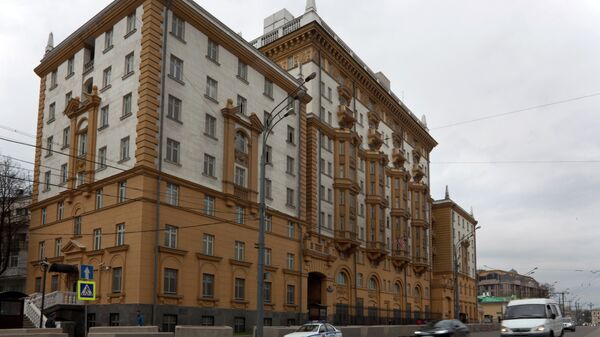"There will be no dismissals after the adoption of this bill," press service of the US embassy in Moscow told Sputnik.
The Intelligence Authorization Act that was sent to the US president for approval on December 12 requires the Secretary of State to ensure that "every supervisory position at a US diplomatic facility in the Russian Federation is occupied by a US citizen who has passed, and is subject to, a thorough background check." Therefore, the measure reduces the reliance of the diplomatic mission on locally employed staff.
The bill was introduced in May 2014 and approved by Congress on December 9. The US president is expected to sign the bill before the end of 2014.
Relations between Moscow and Washington have deteriorated as a result of the Ukrainian crisis. In late October the Director of National Intelligence James Clapper claimed Russia posed a greater cyberthreat to the United States than China.



